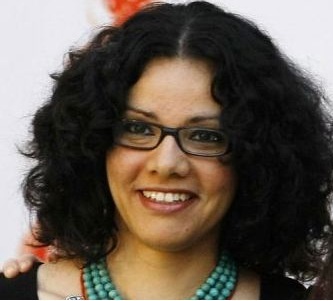GENEVA: Western powers pressed the UN’s top human rights body Friday to investigate possible abuses in Syria, where officials say the killings of more than 450 people during protests may include crimes against humanity.
The United States and the European Union urged a divided UN Human Rights Council to order a probe and insist that Syrian President Bashar Assad allow in foreign journalists and ease Internet restrictions.
Diplomats from China, Russia, Nigeria and Pakistan — the latter two representing the 53-nation African Union and 57-nation Organization of the Islamic Conference, respectively — said that any council action could be interpreted as meddling. Along with the opposition, some Arab countries were expected to abstain from Friday vote.
The UN nuclear agency, meanwhile, was setting the stage for more potential international action on Syria. Diplomats in Vienna said the agency will report that a Syrian target bombed by Israeli warplanes probably was a secretly built nuclear reactor meant to produce plutonium. Syria denies the unfinished building had any such uses.
In Geneva, UN human rights deputy chief Kyung-wha Kang, said the Syrian government "risks creating a downward spiral of anger, violence, killings and chaos" through tactics such as ordering tanks and other artillery to fire on peaceful pro-democracy protesters and snipers to shoot people trying to help the injured or remove dead bodies from public areas. She said around 1,800 people also have been injured in Syria.
"Any official ordering or undertaking of attacks against the civilian population can be held criminally accountable," she said. "Such attacks that occur on a widespread or systematic basis may amount to crimes against humanity."
However, Syria’s UN ambassador, Faysal Khabbaz Hamoui, said the council was misguided since his nation was only defending itself against extremists.
"The council is acting under the pretext of humanitarian action to meddle in the internal affairs of a country," he told the council. "It’s a return to a colonialist mentality."
Nigerian diplomat Ositadinma Anaedu, speaking for the African Union, cautioned that any council action could be interpreted as "political," and Chinese diplomat Xia Jingge warned the UN could further complicate the situation in Syria and undermine the council’s own credibility."
"We reject any pressure tactics on human rights issues and any naming and shaming," he said.
Pakistan’s UN ambassador Zamir Akram, speaking for the Organization of the Islamic Conference umbrella organization of Muslim nations, said: "What we are witnessing today are attempts by certain countries to create precedents for the doctrine of interference on flimsy grounds."
Assad promised reforms last week and ditched the emergency laws the government has been using for a half-century to detain people. But critics point out he has continued to try to violently quell the protests that are the gravest challenge to his family’s 40-year ruling dynasty. Activists in Syria are calling for a "Friday of rage" following Muslim prayers, to commemorate the killings of 112 people in one day.
Diplomats say the world needs a clearer picture of the crackdown.
"While the Syrian authorities announced the lifting of the state of emergency, the repression became further pronounced," said France’s ambassador to UN agencies in Geneva, Jean-Baptiste Mattei. "It’s essential that the council send a firm message vigorously denouncing the massive human rights violations by the Syrian authorities."
The US and Western diplomats also planned to use Friday’s session to rally opposition to Syria’s unopposed candidacy to join the 47-nation UN Human Rights Council. It will gain a three-year seat unless an Asian country contests it. To gain a council seat Syria needs the support of half the world’s governments in a May 20 vote of the 192-nation UN General Assembly in New York.
Voting is done by region and four countries in the UN’s 53-nation Asian Group — India, Indonesia, the Philippines and Syria — are running for four seats.
Just by focusing attention on a specific nation’s alleged abuses — in only the second such special session the council has ever called — gave a small measure of victory to the United States, which publicly opposes Syria’s council candidacy, and 15 other nations that requested the session. The first such gathering was in late February to deal with Libya.
"We condemn their brutal methods of silencing dissent, through shooting unarmed peaceful demonstrators and torture," said the US ambassador to the council, Eileen Chamberlain Donahoe. "To the brave people of Syria, who are demanding freedom and dignity, we are here to say that the world stands by you, and we will not ignore your plight."
She said all governments that "turn guns on their own people" have no place on the UN’s top human rights body.
But the US, Europe and their allies were running into widespread opposition during the session to gaining approval for an independent probe that would recommend prosecution if violations of international human rights law are uncovered. –Bassem Mroue in Beirut and George Jahn in Vienna contributed to this report.
